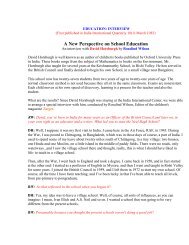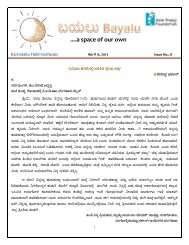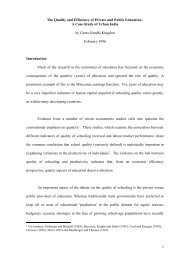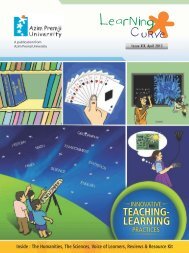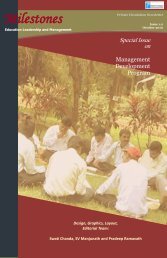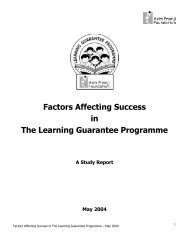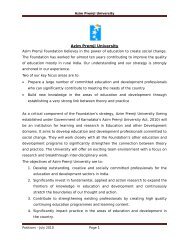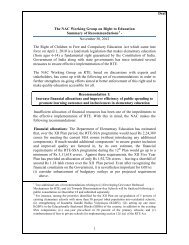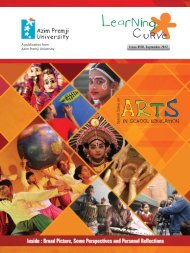Language and Language Teaching, Issue 2 - Azim Premji Foundation
Language and Language Teaching, Issue 2 - Azim Premji Foundation
Language and Language Teaching, Issue 2 - Azim Premji Foundation
Create successful ePaper yourself
Turn your PDF publications into a flip-book with our unique Google optimized e-Paper software.
Book ReviewsIndian English: Towardsa New ParadigmR.K. Agnihotri <strong>and</strong>Rajendra Singh (Eds.).2012 New Delhi: OrientBlackSwan,ISBN: 978-81-250-4371-3,pp. 336Reviewed by: RajeshKumarThe subtitle of this edited volume modestlysuggests that it presents a new paradigm in thestudy of Indian English. However, a seriousreading of this book reveals that it sets abenchmark for the study of Indian English inparticular, <strong>and</strong> the study of English in the general;it presents Indian English in a new avatar withspecial reference to the concept of a nativespeaker. In fact the concept of a native speakerhas been redefined in this book.The design of this edited volume is extremelyinnovative. It puts a target paper at the centre,<strong>and</strong> then looks at the responses to the ideasmentioned in the target paper from variousperspectives. The target paper is in section one;the responses to the target paper withgrammatical, socio-linguistic, diachronic,cultural, political, philosophical, <strong>and</strong> pedagogicalperspectives in section two; <strong>and</strong> finallymiscellaneous comments <strong>and</strong> discussions insection three. The target paper is extremelyprovocative in its approach towards thetreatment of Indian English <strong>and</strong> the question ofa native speaker. According to the mainargument of the paper, Indian English is part ofthe linguistic ecology of India, just like any otherlanguage of India. Questioning the concept of a‘non-native speaker’, Singh examines it from asocial as well as a linguistic point of view.According to him, English must be looked at fromthe point of view of ‘English of India’. Heasserts that the study of English in terms of‘English in India’ subsumes the application ofthe concept of a native speaker in the sensethat English in India is essentially the English ofnon-native speakers.The responses to the target paper are varied<strong>and</strong> intense. R. Amritavalli, Rajesh Bhatt,Rakesh Bhatt, <strong>and</strong> Colin Masica respond to thequestions raised by Rajendra Singh from agrammatical perspective. Amritavalli examinesthe idea of English with reference to UniversalGrammar <strong>and</strong> First <strong>Language</strong> Learning. Shealso examines English in the light ofmultilingualism. Rajesh Bhatt substantiatesSingh’s argument that the study of English withreference to the distinction between native <strong>and</strong>non-native speakers is not tenable. RakeshBhatt points out that the typical features ofIndian English are peculiar only in the sense thatsuch peculiarities exist in all varieties of English.Masica investigates the historical significanceof English, adding a new dimension to the studyof English. Agnihotri reiterates <strong>and</strong> substantiatesthe point that the classification of languages withnative <strong>and</strong> non-native labels does not add muchvalue to the study <strong>and</strong> our underst<strong>and</strong>ing oflanguage, since in both contexts there does notseem to be much difference as far as thestructure of the language is concerned. ThoughIndian English is a legitimate variety of English,Langue holds the native <strong>and</strong> non-nativedistinction worthy of a full length debate. Fallingin the same line <strong>and</strong> finding native <strong>and</strong> non-nativecontexts relevant in the area of multilingualism,Shreesh Chaudhary also finds the distinctionsignificant. However, for Backus, the native <strong>and</strong>non-native distinction is part of a continuum.<strong>Language</strong> <strong>and</strong> <strong>Language</strong> <strong>Teaching</strong> Volume 1 Number 2 July 2012 48



